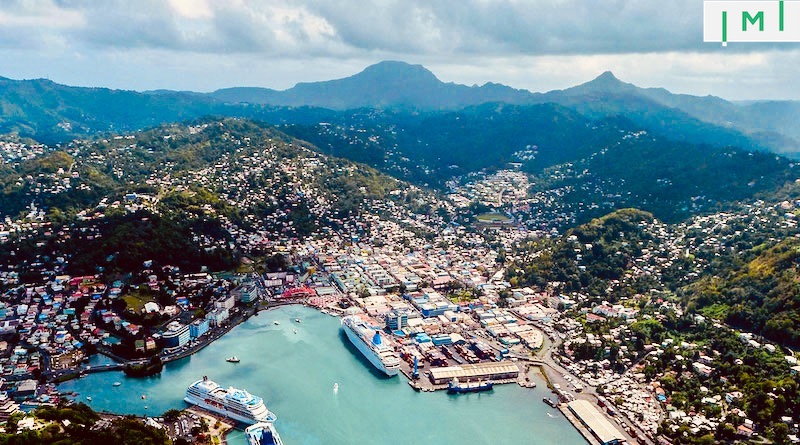Saint Lucia CIU Circular Highlights Caribbean CIPs’ Ongoing Struggle With Banks
In a memorandum circulated to authorized agents on Thursday, the Saint Lucia CIU reports that it is experiencing “inordinate delays in the clearance of all requisite bank fees made through both of our banking options, namely Bank of Saint Lucia Limited and Republic Bank (EC) Limited.”
The CIU further warns that, as a consequence, agents should expect delays in the commencement of due diligence work on applications, in the issuance of Certificates of Registration, as well as in the issuance of 2023 agent licenses.
For years, banks, both local and international, have stymied Caribbean Citizenship by Investment (CBI) programs by either holding up payments for weeks on thin KYC/AML pretexts (‘thin’ because the CIUs already conduct far more rigorous due diligence on the individual than banks do) or by refusing to handle CBI-related payments altogether. Sometimes, bank policies force CBI programs to exclude particular individuals based merely on their nationality. This has been the case with Russian CBI applicants in Saint Lucia for almost a year, as CIU boss Mc Claude Emmanuel explained in an interview with IMI in September:
“Definitely, our banking partners are critical to this process,” Emmanuel remarks. “And, obviously, they have their correspondent banking relationships, and we can only begin to accept [Russians] – even post this ongoing invasion – when our banks are again comfortable with them. […] If our banks are unwilling or unable to accept funds from Russian sources and those persons cannot pay the requisite fees and can’t make their investments, then the business of due diligence cannot happen. So, I think, this is probably the most fundamental part of the process; it’s the banking sector’s responsibility.”
Delays, therefore, are commonplace for Caribbean CBI-related transactions. The Saint Lucia CIU’s circular, however, warns of “inordinate” delays, i.e., above and beyond the normal delays. What does inordinate mean in this context?
“Saint Lucia is one of the best because they accept credit cards for payment of initial due diligence fees, thereby avoiding wire transfers,” says Nicholas Stevens of NTL Trust, an authorized agent in Saint Lucia. “But we have some cases now where we have been waiting around 45 days for funds to move from a lawyer’s account in Saint Lucia to another account in the same bank, where they have to end up for CBI purposes.”
Questioned as to whether it’s the local banks’ compliance departments or the correspondent banks that are causing the delays, Stevens remarks that while he can’t rule out that local compliance officers could be acting in an overzealous manner, the problems definitely originate with de-risking among the correspondent banks in the US and Europe.
“Grenada Co-operative Bank accepts only US dollars now because the correspondent bank they were using for euros and British pounds refused to process any more CBI payments,” comments Stevens. “Wells Fargo also rejects all CBI payments that are inadvertently routed through them. I think, these days, it is mainly one or two large US banks processing all CBI payments into the Caribbean.”
Last September, while speaking to the US House of Representatives Committee on Financial Services, Barbadian Prime Minister Mia Mottley appealed to American legislators to reverse their policy of de-risking in the Caribbean, which has seen the region’s small economies lose many correspondent bank relationships. For banks, operating in jurisdictions subject to de-risking policies come at a sharply higher cost of compliance and due diligence. When those same jurisdictions also have tiny populations and markets, as is the case in the Eastern Caribbean, international banks gauge them not to be worth the trouble – and leave.
In a July 2019 article – CBI’s Caribbean Banking Problem and Three Easy Ways to Fix It – commentator Peter Macfarlane suggested Caribbean CBI programs consider receiving funds in their own currencies or in cryptocurrencies rather than the US dollar and also that they set up their own banks to bypass the SWIFT system altogether.
Dependent as Caribbean CBI programs are on applicants’ payments reaching their destinations, leaving themselves so vulnerable to disruption by only maintaining two banking options appears imprudent. Why, then, is this the case?
Stevens explains that this has happened “because Canadian banks dominate the Caribbean banking market, and they don’t touch CBI payments at all. Saint Lucia also has international (offshore) banks, but they are subject to the same correspondent banking pressures. It appears the CIU probably wouldn’t want to work with these smaller offshore banks.”
But the real question, he points out, is: Why doesn’t the CIU open accounts in banks outside the country?
“That is the question I’ve been asking for the last ten years,” laments Stevens. “Probably, local politics has something to do with it.”


